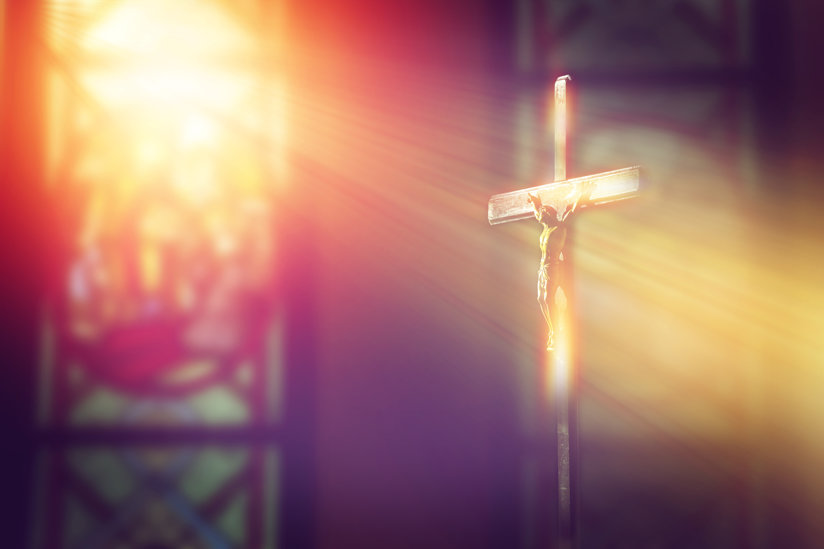
-
HOME
-
WHAT IS STANDOur Mission Our Values Our Help Contact
-
WHAT WE FIGHT FORReligious Freedom Religious Literacy Equality & Human Rights Inclusion & Respect Free Speech Responsible Journalism Corporate Accountability
-
RESOURCESExpert Studies Landmark Decisions White Papers FAQs David Miscavige Religious Freedom Resource Center Freedom of Religion & Human Rights Topic Index Priest-Penitent Privilege Islamophobia
-
HATE MONITORBiased Media Propagandists Hatemongers False Experts Hate Monitor Blog
-
NEWSROOMNews Media Watch Videos Blog
-
TAKE ACTIONCombat Hate & Discrimination Champion Freedom of Religion Demand Accountability
Hate Against the Catholic Church—Why We Are Our Brothers’ Keepers
I recently read an article concerning the rise of vandalism against Catholic churches in the U.S. It was written last month, but harkened back to July 11, 2020, when in the same morning two churches were set ablaze—the historic San Gabriel Mission in Los Angeles and Queen of Peace Catholic Church in Ocala, Florida. Thankfully no one was injured, however one fire destroyed the rooftop of the 250-year-old San Gabriel landmark.
The San Gabriel Mission arson attack was the fourth in California against missions founded by Father Junipero Serra during Spanish colonial times. As a result of these attacks, representatives from the U.S. Conference of Catholic Bishops (USCCB) began tracking all such acts of vandalism against Catholic properties in the U.S. To date the USCCB has tracked 105 acts of vandalism, graffiti and arson against U.S. churches and statues.

Some activists believe that property crimes against Father Serra statues were in protest of the enslavement of Native Americans by Spanish conquerors. Morning Start Gali of the Pit River Tribe was quoted saying that the protestors’ actions in Northern California last year during Indigenous Peoples’ Day was an act of healing to rectify the church’s role from centuries ago.
Acts of hate and violence against Catholics are of course nothing new. Disdain for some actions and customs of the Catholic Church dates back to the 11th century East-West Schism in which Christianity split into two major sects, Eastern Orthodox and Catholicism. This was further exacerbated with the Reformation of 1517 beginning with the dissertations of Martin Luther, which became the genesis of Protestantism. Anti-Catholicism was brought to America by Protestant immigrants in the original 13 colonies and reached its peak in the mid-19th century with large numbers of Irish and German immigrants.
Catholics are not unique in the planetary history of hate crimes and discrimination. Every religion at one time has suffered and many in the present suffer attacks based on ethnocentric nativism—the evaluation of other’s cultures compared to one’s own and favoring politically and otherwise the interests of existing inhabitants over immigrants.
Catholics are not unique in the planetary history of hate crimes and discrimination. Every religion at one time has suffered.
Fortunately for Catholics, of the 8,263 FBI catalogued hate crimes in 2020, only 73 were anti-Catholic. But that’s still 73 too many and raises the following philosophical question: are the crimes of today justifiable by the crimes of yesteryear? In my mind, decidedly not.
If we are to judge each other today based upon the actions of our forefathers, none of us would be innocent and we could not go forward. As a nation of individuals and various groups, that which binds us are our common goals and aspirations towards a better, more cohesive tomorrow. Evolution should not just be about apes and skulls, it should be about social progress—progress that results in more mutual respect and better treatment of each other regardless of religion, race, ideologies or proclivities.
Violence against one’s fellows has been around since Cain asked, “Am I my brother’s keeper?”
And the correct answer is and remains an emphatic yes!
Perhaps it’s time for us to look for a unifying philosophy that brings all faiths and all people of Earth together on a higher plain of awareness, and eliminates the impulse to act in hatred.
If we look closely, we may find that such a philosophy already exists.









